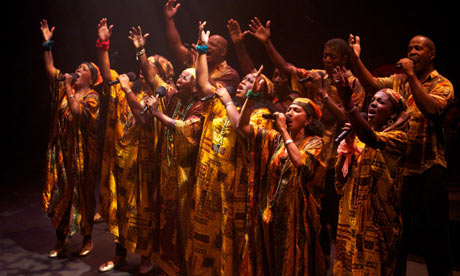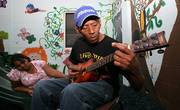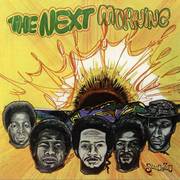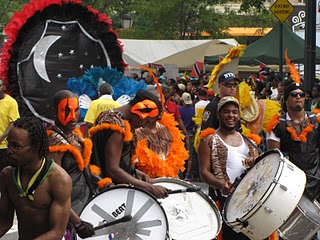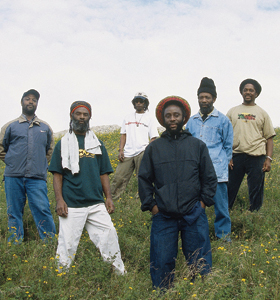Mr. Winston Munroe gives an overview of the Sesame Flyers International organization, its activities, the services it provides, and its overall impact within the Caribbean community in Brooklyn, New York.
In the following article, published in The New York Times, Oct. 3, 2011, Rob Kenner reports on the passing of Jamaican music icon, Leonard Dillon, and celebrates his contributions.
The cause was cancer, his daughter Patrice Dillon said.
Long before artists like Bob Marley and Peter Tosh made reggae music synonymous with social and spiritual uplift, Mr. Dillon had emerged as one of the first Jamaican singers to infuse his songs with Afro-centric themes and sharp-eyed commentary.
His body of work mirrored the evolution of Jamaican music, from laid-back mento-flavored folk songs through the horn-driven dance tunes of ska in the ’60s to the smooth rock-steady sound that eventually morphed into the bass-heavy music known as reggae.
Tosh was so taken with Mr. Dillon’s earliest compositions that he introduced him to Marley and the Wailers. They soon brought him to Studio One in Kingston — Jamaica’s first black-owned recording studio and label — where the Wailers sang harmony on Mr. Dillon’s earliest recordings.
Mr. Dillon joined Stephen Taylor and Aston Morris to form a vocal trio called the Ethiopians in 1966, the same year that Haile Selassie, the emperor of Ethiopia, made his first official visit to Jamaica. Selassie was greeted by throngs of ecstatic Rastafarians, members of a Jamaican spiritual movement that saw Selassie as divine and Ethiopia as the promised land.
After Mr. Morris left the trio Mr. Dillon and Mr. Taylor continued as a duo, turning out hits, primarily in the Caribbean during the 1960s, like “Everything Crash,” “The Whip” and “Train to Skaville,” which also found wide popularity in Britain.
After Mr. Taylor died in a car accident in 1975, Mr. Dillon recorded on his own as the Ethiopian.
Mr. Dillon’s best songs featured a rebellious point of view that paved the way for reggae firebrands like Burning Spear and Culture.
Leonard Winston Dillon was born on Dec. 9, 1942, in Port Antonio. His mother was a music instructor. In addition to his daughter Patrice, survivors include his wife, Sylvia; six other children, Camille, Tamara, Hyatta, Raymond, Serrano and Lenward; and seven grandchildren.
He learned he had a brain tumor this year and had surgery, but the cancer spread, his daughter Patrice said.
Mr. Dillon’s music fell out of favor with the rise of dancehall reggae in the 1980s and ’90s, but he was undeterred. His final project, an unreleased 2009 album called “Original Hit-Makers From Jamaica, Volume 1: Leonard Dillon the Ethiopian,” was an attempt to restore his brand of vintage reggae to prominence.
“I think he was trying to bring back the name Ethiopians in Jamaica,” said Bunny Brown, a fellow Studio One recording artist. “You know, that name hasn’t been called in Jamaica for years, but it’s called in other parts of the world. He was also trying to bring back the real thing, the real authentic music, back to where it came from.”
For original posting: Leonard Dillon, Early Reggae Singer in the Ethiopians, Dies – NYTimes.com.
Mr. Winston Munroe, founding member of Sesame Flyers International, speaks about his early involvement in the Brooklyn Carnival and briefly recalls historical aspects of the festival.
Renowned Trinidadian musician, keyboardist Allan Oxley recently released his 2012 pan kaiso, Heavy on Pan. With this offering, Allan assumes the roles of lead singer, composer, and arranger as he continues along his musical journey. Here is an audio clip of Heavy on Pan, which is followed by a biography of Allan’s musical life and accomplishments.
Click to listen: Heavy On Pan (A Tribute To The Grandmaster)
Biography:
In Trinidad and Tobago, the name “Oxley” is synonymous with music and Allan Oxley has lived up to that tradition of his parents, Ken and Stephanie Oxley (both now deceased). Ken Oxley was the famous bass baritone singer who sang for many audiences all over Trinidad and Tobago. Stephanie, his wife, was also involved in music and was equally responsible for the involvement of their three children in this artform. Allan, the youngest, and his older siblings were often wooed to sleep by the harmonious vocals of the ever popular Argonauts Male Voice Choir of which his father Ken was founder and leader.
Allan started to learn the piano at age 9. He studied and sat for the examinations of the Trinity College of Music (London) and reached Grade V in Practical Pianoforte and Grade III in Theory of Music.
After leaving school in 1969, Allan became involved in the local music band scene as a keyboardist playing with several combos. He went on to such legendary bands like Joe “Chet” Sampson, Gemini Brass, Shandileer and Atlantik to name a few. Allan was an original member of Shandileer in 1979 and stayed with that band until 1991 which was perhaps, one of the more defining stints in his long and ongoing music career.
Allan toured extensively with some of those bands throughout the United States of America, Canada and the Caribbean. He played in most of the major carnivals in Trinidad and Tobago, New York, Toronto, Montreal, Miami, Orlando, Barbados and Antigua. Besides playing keyboards, he did background vocals and percussion on recordings with Gemini Brass and Shandileer and also directed a couple of local recording acts including Sharlene Boodram.
As a freelance keyboardist, Allan has played at The Revue Calypso Tent from 1999 to 2005 and it is there his involvement in calypso music expanded. He was guest keyboardist for the Trinidad and Tobago Police Band during their calypso competitions, was a member of the “Trinidad and Tobago All Star Band” which supplied accompaniment for Calypso Semifinals and Finals competitions in St Lucia Carnival celebrations, as well as keyboardist for The Ambassadors Calypso Tent in St Lucia W.I. Allan was also well known as the Musical Director/Arranger/Keyboardist at National Housing Authority’s Annual Calypso Competitions from 1993 to 2003, organizing and supplying music scores, musicians and music band for rehearsals and shows. He also worked at that Trinidad and Tobago Government Institution as a Draughtsman from 1971 to 2001 before retiring.
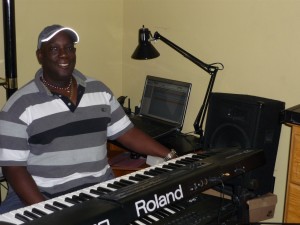 As a volunteer, Allan also assisted teachers from St James Secondary School and Nelson Street Boys’ R.C. School, in preparing students for their respective calypso competitions.
As a volunteer, Allan also assisted teachers from St James Secondary School and Nelson Street Boys’ R.C. School, in preparing students for their respective calypso competitions.
His experience also includes performances alongside Double Tenor Jazz Steel drummer, Clyde “Lightening” George at the “Pan Institute” in Diego Martin and one in Chicago U.S.A. He had the honor of accompanying the Mighty Sparrow at shows in St Lucia, Calgary, Montreal and Toronto, Canada and shows with Kelly Greene’s “Harmony with Brass”, accompanying calypsonian Baron at The St Lucia Jazz Festival.
In Central Florida, U.S.A., Allan has performed alongside Double Tenor players John “Mr. Steel” Smith and the Orlando based band “Tropical Steel” and also Mitch Warner at various cooperate and public events in Florida.
Mr. Oxley’s love for music and Steel Pan saw him providing community service to his neighbourhood “pan ‘round the neck” Steel Band, Soul City. It was this unit he tutored himself on the tenor pan and combined all his musical skills to begin composing and arranging for the Steel Pan. Besides Soul City, he also assisted The Entrepot Secondary School Steel Band of St. Lucia, West Indies in preparation for their performance at the World Steel Band Festival held in Trinidad and Tobago, West Indies, in 2002.
Allan has since migrated to The United States of America, but had a profound experience while concluding a performance in Trinidad, which was a tribute to The Grandmaster, The Lord Kitchener. As a result of this, he composed his first song, “HEAVY ON PAN – (A Tribute To The Grandmaster)”. With his musical skills, he arranged and scored the music for the various instruments. He has put down all the initial tracks for his composition at his home studio. His lead vocals, background vocals which were done by Lyma Dunbar, a former vocalist with Shandileer and the Steel Pan tracks by John “Mr. Steel” Smith ( Double Tenor Player) of “Tropical Steel” of Orlando, Florida were later added. In addition to those tracks, the mixing and mastering were executed by John “Mr. Steel” Smith at his production studio in Orlando, Florida.
In addition to this recording, Allan has arranged and fully scored a Steelband Panorama version of this song which he hopes to work with any Steel Orchestra who require his services as an Arranger in 2012. The parts scored are: High and Low Tenor, Double Tenor, Double Second, Guitar Pan, Cellos, Quadraphonics, Six/Nine/Twelve Bass. As a bonus, Mr. Oxley will also include in his contractual arrangement package with that Steel Orchestra, a fully scored “Bomb Tune”. A demo of these arrangements can be heard on request.
Allan aka “Heavy” can be contacted by phone (407) 508 2906 or email argomuzik@yahoo.com.
Barbados’ Lew Kirton: singer, drummer.
Othersounds.com, which has published interviews with a number of musicians around the globe (including the Caribbean), presents an interview with Barbados’ Lew Kirton.
Lew Kirton (b. 1948) grew up in a religious household in St. Michaels in Barbados. Llewellyn Randolph Kirton as he was born began singing in St. Cyprians choir as a kid. Despite his parents aversion to secular music he continued to want to sing outside of church from age 12 – even when it meant to sneak out of the house to do it.
He went from the Starlighters, Draytons 3 (which after Kirton left became known as the Draytons 2), recording with Barbados’ most popular r ’n b outfit Blue Rhythm Combo, drumming with Sam & Dave to a solo career. For a kid who was nicknamed ”Jiggs”, after the skinny and bowlegged British cartoon of the same name, Mr. Lew Kirton has an impressive stature in both music and real life.
In the following youtube video, Kirton sings Heaven in the Afternoon.
The full interview can be accessed at: Interview: Lew Kirton « othersounds.com.
In the following article, which appeared in Caribbean Life on September 21, Glenda Cadogan reports on the recent robbery at the premises of the Brooklyn-based community organization Sesame Flyers International.
The strength, resilience and character of the Sesame Flyers International (SFI) brand stood up to the test this week in the face of two burglaries at the Church Avenue headquarters of the community-base organization. In the robbery which took place in two separate incidents on Wednesday and Saturday nights, the organization suffered losses of computers, televisions, sound systems and electronic equipment and a small amount of cash. There were also some significant damage to the property, known as the Cultural Center, as the burglars ransacked both floors of the building located at 3510 Church Avenue. But despite the losses, the organization this week was back to its full operational schedule.
The organization’s chairman, Raymond Luke took the opportunity to inform and assure the wider community that all is well with everyone in the Sesame Flyers family. “As expected, the burglaries may have momentarily rattled some nerves, but by pulling together as a team we have been able to put all our operations back up and is fully operational,” says Luke. “This is a testament to the strength of the organization which has been one of the vanguards of community and cultural empowerment in Brooklyn. You don’t build an organization of 28 years and have the kind of success that is part of our track record by being weak and giving in to challenges in any form,” he adds.
Luke also praised their neighbors who alerted the police while the robbery was still in progress and also officers of the 67th Police Precinct who took swift action and have been able to recover some of the stolen items. “I guess the good neighbor policy which we have embraced and developed over the past 20 years at this location has paid dividends in this case,” says Luke. “And in addition, the police officers have been outstanding in their response and are feverishly working toward apprehending the perpetrators.”
With the distinction of being the “winningest” band in the Brooklyn Labor Day Carnival, Sesame Flyers again captured the coveted title of “Band of the Year” in both the adults and children categories of the 2011 Carnival/parade with a presentation titled: Brazilia. The significance of this win, more than a dozen in its history, was celebrated even in the face of the robberies.
“We have a commitment to making excellence a priority in everything we do whether it is mastering our presentations on Eastern Parkway or in the numerous youth and community empowerment programs which form a part of our annual roster of services,” says Luke. “So we will celebrate both our victory in the masquerader competition as well as the fact that our daily operations are in full effect not just at our main office but at all three locations under our supervision.”
The celebrations move forward with an appreciation party for masqueraders of the winning children’s band on Sept. 24 and on Sept. 25 for the adult masqueraders. The events take place at the (SFI) Culture Center on Church Avenue and Tikki Village on Ralph Avenue respectively.
Founded in 1983 by Joseph Charles, SFI is a multi service agency catering to the needs of youth and adults. The agency provides a comprehensive, holistic strategy to youth and community development with culture art at its core. Recognized as one of the top eight youth community programs in New York City, Sesame Flyers International schedule of programs includes academics support, recreational programs, counseling services, cultural events, summer youth employment, computer literacy and job readiness.
Over the past 28 years the organization has enriched its name and recognition in the New York cultural community by winning the “Band of The Year” title in the West Indian American Day Carnival Parade for the past 12 times in the last 13 years. (There were 11 consecutive wins from 1999-2008). Their steelband orchestra has also been a force in the annual Panorama competition and has performed at some of the most prestigious concert venues in New York City.
For original report: Burglars rob camp, not spirits of Carnival’s winningest band • Caribbean Life.
Creole Choir of Cuba at Symphony Space
Caribbean Life, Sept. 17th 2011, reports on upcoming performance of the Creole Choir of Cuba.
On the heels of their blazing performance in the popular city-wide ¡Sí Cuba! Festival last spring, Symphony Space continues its celebration of Latino culture with this season’s only New York appearance of the Creole Choir of Cuba on Saturday, Oct. 2 at 7:00 p.m. in the Peter Jay Sharp Theatre.
The Creole Choir of Cuba represents a rare Cuban musical tradition. Comprised of descendants of Haitians who came to Cuba to escape slavery, the ensemble members perform a repertory of songs with percussion, offered in their traditional Creole language.
With passionate melodies and harmonies synonymous with U.S. gospel and the call and response of Caribbean folk music superimposed over varied Afro-Cuban beats, this jubilant ensemble of four men and six women reinvents their traditional music in a stunning and transcendent way.
Symphony Space’s Artistic Director Laura Kaminsky states, “Bringing another evening of extraordinary Latino musical culture to Symphony Space is a necessity for us as we continue to explore and extol the richness of Cuba and her neighbors.
“Despite coming from a cultural tradition with a painful past, the joy in this music is palpable, and the way that this old music is reinvented for the 21st century is remarkable. Symphony Space is proud to invite the Creole Choir of Cuba back to New York City for their only appearance here this season.”
For original report see: symphonyspace.org-creole-choir-of-cuba and Creole Choir of Cuba at Symphony Space.
The following article was written by Deborah Circelli, staff writer for Daytona Beach News Journal, and published on Jan. 16th 2011.
Bert Bailey plays daughter Jackie’s guitar at the STAR Family Shelter. The family is about to move into their own home. (N-J | Sean McNeil)
DAYTONA BEACH — Bert Bailey’s fingers glide over the guitar strings with hints of Jimi Hendrix and Bob Marley as he sings in a raspy blues voice.
“I thought I wouldn’t make it at all,” the lyrics roll off his tongue, eyes occasionally closing, then a sudden smile, a musician’s joy. “Just when that girl took my hand, everything was all right. I said girl, I shoot you straight to the top.”
Nearby, piled on a slide and wooden jungle gym in the small playground outside the local homeless shelter, 10 children stare at the person they know as “Mr. Bert,” who cleans and lives at the shelter.
They remain quiet and focused until the song ends, then burst into applause as he raises his hand and shyly smiles, thanking them and some parents who later appeared.
It’s not the typical audience for Bailey, who is from Trinidad and toured with the reggae superstar Marley for a few months in the late 70s, after playing in clubs with another band in New York City.
A band Bert Bailey formed while living in New York, The Next Morning, had an album in 1971. Bailey, who has been living at the STAR Family Shelter, said he is pictured in the center. (Bert Bailey)
He has struggled over the years with odd jobs cleaning or moving furniture, “because playing wouldn’t always be there to supply a steady income.”
He found out only recently that an album from his early days in the United States that he never thought saw the light of day has been selling on the Internet and downloaded for cell phones and MP3 players.
“We had no idea what ever happened to the records,” Bailey said. “I don’t believe this; after all these years, this is hooked up all over the Internet.”
Bailey, who has been playing in bands throughout Volusia and Flagler counties for more than 15 years, has been living the past 11 months at the STAR Family Shelter on Seagrave Street with his 12-year-old daughter and her mother, his longtime partner. The family will soon be moving into a rented house.
The couple said they fell on hard times when their hours got cut doing maintenance, laundry and other work for area hotels. Part of the decline, they said, came after their daughter almost died as she suffered cardiac arrest at Daytona Lagoon water park in 2008 and spent more than a month at the hospital recovering.
At the shelter, which houses 30 adults and 43 children, some of the children and adults are surprised when they hear the voice and guitar sounds of Bailey, who doesn’t like to tell his age but is in his early 60s. He played during Christmas for residents and practices in his room or in the playground area with his daughter’s small guitar. His electric guitars are at the house of the drummer in a local band he’s in called Children of Stone.
Bailey’s nickname is TriniHendrix because he’s from Trinidad and people compare his sound to the late guitar legend.
“He’s an absolutely killer guitarist,” said Tony Marlow, owner of The Golden Lion Café in Flagler Beach, where Bailey has played off and on for 10 years. He also gave Marlow’s son guitar lessons about nine years ago.
“He’s just so good,” said Marlow, who was shocked to hear Bailey has been living in the homeless shelter. “I never knew he was on such rough times.”
The director of operations over the shelter and the STAR Family Center, Raul Gonzalez, is hoping somebody from Bailey’s past recognizes him and he’s able to reconnect or that someone hears his story and his career can rebound.
The recent news story of an Ohio homeless man, Ted Williams, whose broadcasting voice brought him national attention, gives Gonzalez hope.
“He is the most humble man I have ever met,” he said, adding Bailey is only paid part-time, but works all day long at the shelter doing maintenance and other volunteering. “His story is like so many other musicians in the past who didn’t have the proper representation. He’s kind of disappeared into time.”
FROM TRINIDAD TO NEW YORK
Bailey has been playing guitar since he was 9 years old, influenced by an uncle who was in a band in Trinidad. Bailey said he and his three brothers and two cousins formed their own band called Bert Bailey and the Jets, playing at fairs and schools, making records and performing on a television show and on the radio in Trinidad.
“We played everywhere and all over the country. We were on posters all over town and we played with the big groups,” Bailey said.
After moving to the United States in the late 1960s, he said he attended a music school in New York City for two years and worked at an insurance company in the mailroom and supply department. But he said, “I was lost without my group and all my friends.”
Eventually, he formed another group, mostly from Trinidad, with one of his brothers, Herbert, a cousin and two other men. They billed their sound as rock with “an island influence.
“Everybody left their jobs and we went full speed ahead. I started writing all the songs,” Bailey said. “This is what made our music different. We still had the island flavor in it.”
The group, called The Next Morning, hit 42nd Street and Broadway in 1970 “going from studio to studio and company to company” until they got noticed by a record label and produced an album, “The Next Morning” at New York’s Electric Lady Studios. The band was told to keep playing in clubs throughout New York City until a single was released from the album.
He said the musicians were promised an advance worth thousands of dollars for equipment to go out on tour with another well-known band at the time, “but the money never came.” They kept waiting for the single and album to be released and the group became frustrated, he said, and broke up.
Bailey said he eventually landed in Miami, where his mother lives. He was recording in the late 1970s with a mutual friend of Marley’s, a musician known as King Sporty, “when this guy with big hair came through the front door and it was Marley.”
Marley, he said, later had him fill in for one of the lead guitarists for six shows of the Kaya tour in 1978, named for Marley’s album.
One night on tour in Detroit, Marley, who Bailey describes as “a messiah of music” and whom he idolized, asked Bailey to come to his room to talk to him.
“I was having goose bumps — this was Marley talking to me,” Bailey said with excitement still in his voice today.
Marley took out a Bible and started reading from a passage that Bailey recalls dealt with the 12 tribes ofIsrael, and he thought “this is getting heavy.”
“He started reading something about ‘you are my twin brother,’ ” Bailey said. “I’m not really following, but I have to. He is way up there. He said, ‘you are here to learn and to see and to transfer what I’m teaching you into your own story.’ ”
He continued playing with King Sporty and eventually ended up in Daytona Beach in the 1980s where a musician friend lived. Through his friend, he met the woman he calls his wife about 19 years ago and the mother of his three children. He never returned to Miami.
Bailey said it wasn’t until one of his daughter’s teachers three years ago pulled up his name on the Internet that he found out “The Next Morning” had been released in 1971 and is now on CD. The album has become a collector’s item selling on some websites and in some countries for hundreds of dollars.
“After all these years, I was blind about what was out there. I’m actually glad and actually blessed to know that the little thing is still here. It’s still alive,” Bailey said. “It’s almost like a miracle.
“This is what we wanted when we were hungry at the time,” said Bailey, who questions why he and band members, who he’s lost touch with, don’t receive royalties.
Gonzalez, who oversees the shelter, hopes to find a lawyer to help Bailey research what happened and see if he can recoup anything from the sales.
“He hasn’t lost anything over time,” Gonzalez said. “I’m looking at a guy who is talented like that and he’s homeless. He’s a simple man who has a passion for playing — that is the only thing he knows.”
‘LIKE HENDRIX AT WOODSTOCK’
Steve Smith of Port Orange, who plays the drums and whose stage name is Mitzsoto, has been playing with Bailey for about four years in their band, Children of Stone.
“Bert can go to places on a guitar that I have never heard,” he said. “The music morphs in a way that is like Hendrix at Woodstock.”
He said Bailey’s life is almost like Hendrix’s life before he became famous and was sleeping in alleys.
“Bert has kind of gone along the same path,” Smith said. “He had fame and stuff coming to him in the ’70s, but through mishaps in life, he’s never been able to get to where he really belongs and that is at the top of the food chain, and that is the way Hendrix was.”
Hyacinth “Mimi” Rismay, the mother of Bailey’s children, said “things have not been the same” since their daughter, Jackie, almost died when her heart inexplicably stopped while at the water park. She said they still don’t understand what happened. She still has to take pills daily for her heart and had a defibrillator implanted, Rismay said.
The couple, who have been together in Daytona Beach for about 19 years, also have two other children, 15 and 16, who live in the U.S. Virgin Islands with their grandmother.
Rismay now works two jobs and spends nights taking care of an elderly woman outside of the shelter. The couple and their daughter, though, see better times ahead. They plan to move this week to a rented house through the Homeless Prevention and Rapid Re-Housing Program, which is part of the American Recovery and Reinvestment Act and helps with their expenses.
Bailey, who has had problems with drugs in the past but didn’t want to talk about it, said being at the shelter kept him focused and has been a blessing because the staff helped him save money and get the shelter job. He plans to continue working at the shelter when he moves out.
While practicing earlier this week, Bailey wore a shirt that read “Live to play.” He sang a song by Hendrix called “Red House” and some originals he’s written about love and inspiration. Sounds of small children crying and playing drifted in from outside.
“Every day I take my guitar and this is how I get into my peace of mind. That is how I calm down,” said Bailey, who mostly practices in his room or at a band member’s house. Fellow shelter residents gathered to hear him play on this afternoon.
Sherri Reid, 41, who lives at the shelter with her two daughters, said Bailey is “a hidden talent.”
Sabrina Troyer, 11, who is at the shelter with her mom and sister, said she likes Bailey’s “rhythm and how he plays. It touches you.”
Bailey’s daughter, Jackie, a sixth-grader at Holly Hill Middle School, sat nearby with the other children. She writes songs and loves rock music and hopes one day to sing and produce. She’s been inspired by her father, who told him her songs need to have “rhythm and it needs to make sense.”
As he continued to play, another man living at the shelter said he had no idea Bailey had such talent.
“I’m a quiet person,” Bailey said after practice. “I don’t want people to feel I’m any different.”
For original report: ‘Killer guitarist’ struggles but pulls family out of homelessness – News.
The following report was written by Saxon Baird and published on The Official Blog of Afropop Worldwide on Sept. 6th 2001.
While the rest of America was enjoying an extra day off with barbecues and baseball, Brooklyn was celebrating its Caribbean population with the 44th Annual West Indian-American Day Carnival Parade. The event is the biggest Carnival parade in North America and featured its usual, colorful array of floats stacked with speakers blaring the best in soca and new calypso, sparking carnival costumes and thousands of flags representing every country of the West Indies. Even Mayor Bloomberg and the “Rent is Too Damn High” pseudo-celebrity Jimmy McMillan made an appearance.
Roaring down Eastern Parkway, a boulevard that splits Crown Heights, Prospect Heights and parts of Brownsville and Bed-Stuy; over a million people had flocked to the parade by noon sporting colors, shirts and face-paint of showcasing their country of origin. Hundreds of Caribbean barbecue restaurants set up tents and grills in between tables of trinkets ranging with bracelets with the colors of countries flags to handmade art and t-shirts.
While the parade took place on Monday, the festivities really started on Friday with concerts at the Brooklyn Museum with such celebrated acts as Benjai, the Mighty Sparrow and David Rudder. On Saturday, a smaller children’s parade took place in Crown Heights while J’ouvert begin late on Sunday and marched throughout Brooklyn until sunrise as it traditionally does each year.
The origins of the parade go back to a 1947 Carnival Parade that took place in Harlem along 110th and 7th. In 1965, the carnival relocated to Crown Heights where it has existed and taken place each year since.
Unfortunately, the Labor Day festivities this weekend were slightly overshadowed by a sudden, and unexplainable outbreak of shootings. By Monday, over 39 people had been shot across New York City since Saturday. Despite just a few, minor incidences at the parade, the general vibe throughout was positive and jovial with people there looking to simply celebrate the end of summer with great music, food and dancing while refusing to let the few ruin this long held tradition for the many.
For the original report see: The Official Blog of Afropop Worldwide: West Indian-American Day Carnival Parade Roars Through Brooklyn!.
The legendary reggae band Misty in Roots has announced a 10 date UK tour featuring the pioneers of UK Reggae Music.
With a career spanning four decades, Misty in Roots are one of England’s finest Roots Reggae groups. Along with Steel Pulse and Aswad, the band were one of the most powerful live Reggae acts to emerge from 1970s London; noted for their powerful roots reggae sound and uncompromising lyrical vibrations.
They became the major force in Rock Against Racism, pioneering the Reggae / Punk / New Wave crossover and playing more concerts than any other band in the movement. This opened up a whole new audience for the band who quickly developed a very strong cross over following, playing with acts such as Tom Robinson and Elvis Costello amongst others.
Recently overlooked by the BBC in their ‘Reggae Britannia‘ documentary, Misty In Roots’s contribution to the British Reggae legacy is indisputable, through their reaching out to new audiences in the 1970s with their unique PA and Sound System, they took Reggae to a whole new audience, defining the very sound that we associate with Reggae music today along the way.
The tour kicks off on 30th September at The Picket in Liverpool.
For original report: British Reggae Pioneers Misty In Roots to Launch 2011 UK Tour | World Music Central.org.



